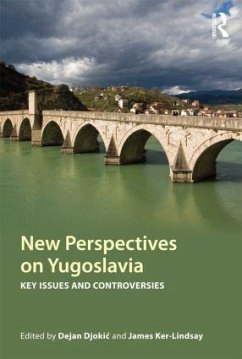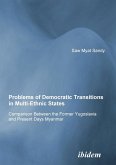Nearly twenty years after it ceased to exist as a multinational federation, Yugoslavia still has the power to provoke controversy and debate. Bringing together contributions from twelve of the leading scholars of modern and contemporary South East Europe, this volume explores the history of Yugoslavia from creation to dissolution.
Drawing on the very latest historical research, this book explains how the country came about, how it evolved and why, eventually, it failed. From the start of the twentieth century, through the First World War, the interwar years and the Second World War, to the road to socialism under President Tito and the wars of Yugoslav succession in the 1990s, this volume provides up to date analysis of the causes and consequences of a range of events that shaped the development of this remarkable state across its various iterations. The book concludes by examining post-conflict relations in the era of European integration.
Traversing ninety years of history, this volume presents a fascinating story of how a country that once served as the model for multiethnic states around the world has now become a byword for ethno-national fragmentation and conflict.
Contributors include Dejan Djokic, James Ker-Lindsay, Connie Robinson, Mark Cornwall, John Paul Newman, Tomislav Dulic, Stevan K. Pavlowitch, Dejan Jovic, Nebojsa Vladisavljevic, Florian Bieber, Jasna Dragovic-Soso and Eric Gordy.
Drawing on the very latest historical research, this book explains how the country came about, how it evolved and why, eventually, it failed. From the start of the twentieth century, through the First World War, the interwar years and the Second World War, to the road to socialism under President Tito and the wars of Yugoslav succession in the 1990s, this volume provides up to date analysis of the causes and consequences of a range of events that shaped the development of this remarkable state across its various iterations. The book concludes by examining post-conflict relations in the era of European integration.
Traversing ninety years of history, this volume presents a fascinating story of how a country that once served as the model for multiethnic states around the world has now become a byword for ethno-national fragmentation and conflict.
Contributors include Dejan Djokic, James Ker-Lindsay, Connie Robinson, Mark Cornwall, John Paul Newman, Tomislav Dulic, Stevan K. Pavlowitch, Dejan Jovic, Nebojsa Vladisavljevic, Florian Bieber, Jasna Dragovic-Soso and Eric Gordy.
"...this is a crucial book which painstakingly restores half-forgotten acotrs to the historical stage. It is indispensable reading for scholars and students alike, as it redresses the balance of agency between elite and non-elite actors, while at the same time highlighting the multifaceted nature of the political issues with which Yugoslavia was faced in both of its incarnations." - Richard Mills, University of East Anglia in European History Quarterly








